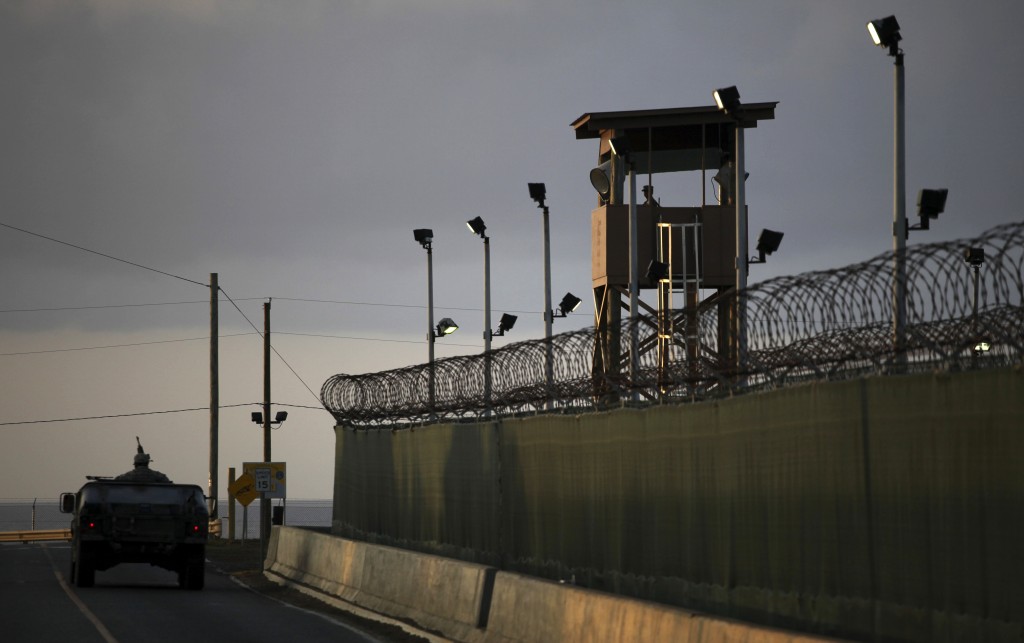US president has failed to live up to his vows over infamous site synonymous with torture
Back in March, as he took questions from members of the public in Cleveland following a speech on the economy, US President Barack Obama was asked what advice he would give himself if he could go back to his first day in office, knowing what he knows now.
“I think I would’ve closed Guantánamo on the first day,” the president replied. He then elaborated, saying that — at the time — there was “a bipartisan agreement that it should be closed.”
“But the politics of it got tough and people got scared by the rhetoric around it,” Obama added, explaining what went wrong “and once that set in then the path of least resistance was just leave it open.”
The spectre of the ghoulish, abuse-ridden detention facility has haunted the Democratic leader’s time in office. It was back during his 2008 presidential campaign that he first promised to close the camp, telling news programmes that it was time to draw a line under this “sad chapter in American history.” He has mentioned closing the camp at least twice in State of the Union addresses.
Despite halting prosecutions in 2009 and shuttling off some prisoners to third-party countries, the camp remains a rallying point for critics of the Obama administration, who say the two-term president has failed to deliver on a key pledge.
The spectre of the ghoulish, abuse-ridden detention facility has haunted the Democratic leader’s time in office.
Now, off the back of a string of high-profile policy wins, which have put the president — who essentially looked like a lame duck last year after the Republicans took control of both Houses in Washington in the midterms — on the front foot, the White House has indicated that they are on the road to closing the camp. Legacy issues, it seems, are on the outgoing president’s mind.
The Guantánamo Bay Detention Camp, located inside a US naval base in Southern Cuba, is world-famous, despite the small number of people who have been actually been there. The vast majority of the global population could tell you what it is, what goes or went on there and recognize the infamous orange jumpsuits prisoners there wear.
“Gitmo,” as it’s known in military circles is synonymous with human-rights violations, which many have argued makes it a useful tool for terrorist organizations seeking propaganda for their causes. Horror stories of forced feeding, torture and unfair trials have circulated and been heard in courts. Earlier this year, prisoners on hunger strikes made headlines across the world.
Even Obama has described the facility, set up by the George W. Bush administration for al-Qaeda and Taliban “detainees” post-September 11, 2001, as a “waste of money.” The camp reportedly costs more than US$100 million a year to run.
According to a report in the New York Times yesterday, 116 prisoners remain, many of whom have been held there for over 13 years. Experts told the newspaper that while some individual “detainees” may be released, in deals like the one that allowed released prisoners to resettle in places like Uruguay, the issue will be those who require “long-term custody.”
“Fifty-two lower-level prisoners are recommended for transfer if security conditions can be met,” the Times reported. “Sixty-four higher-level prisoners are not recommended for transfer.”
Now, seemingly bolstered by his foreign-policy successes, Obama has put the camp’s closure back on the table.
Last week, National Security Adviser Susan Rice hosted a Cabinet-level meeting on how to shut down the prison before Obama leaves office. Key to that discussion will be Ashton Carter, the Defence secretary, brought in to replace Chuck Hagel less than six months ago, who is at the heart of decisions over whether individuals should be released. At the meeting, Carter was reportedly told he had “30 days to make decisions on newly proposed transfers,” the Times claims.
The main obstacle in the road however is the Republican Party and specifically, its control of both houses of Congress. GOP lawmakers have blocked transfers to US prisons and Defence officials at the Pentagon are unhappy at the idea of some being sent back to their homelands, hence the “third-party” approach that has seen prisoners resettled in other countries.
Now, seemingly bolstered by his foreign-policy successes, Obama has put the camp’s closure back on the table. The White House says its plans are in the final stages.
The president may not have been responsible for the camp being established, that dubious honour falls to the members of the Bush administration, but it seems after years of failing to follow through on a key campaign promise that formed one of the pillars of his pitch for the Oval Office, Obama is finally planning to stitch up one of the biggest scars in the United States’ recent history.
@URLgoeshere
Originally published in the Buenos Aires Herald, on Thursday, July 23, 2015.

